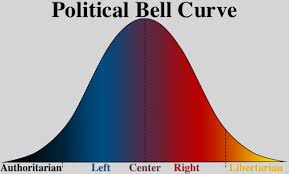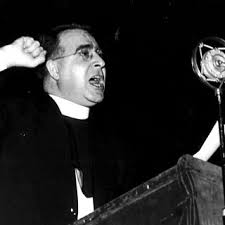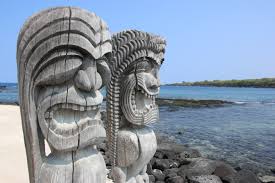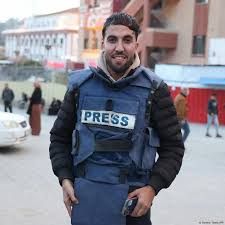Last week, New York mayor-elect Mandani not only demonstrated, once again, his hatred for Israel, but also lifted the hood on the engine of his animus: an abysmal ignorance of both history and law.
To read how, click here:

Last week, New York mayor-elect Mandani not only demonstrated, once again, his hatred for Israel, but also lifted the hood on the engine of his animus: an abysmal ignorance of both history and law.
To read how, click here:

I’m as chagrined as anyone about the ugliness we are witnessing on the extremes of both American political parties. But there have always been isolationists and bigots in Congress.
Does a respectable mainstream, at least presently, dominate in each party?
My take is here.

Yaakov’s middah – defining characteristic – is emes, truth, and so Rashi parses Yaakov’s misleading words to Yitzchak to make them true on some level. For instance, allowing his father to believe it is Esav to whom he is speaking, Yaakov says “I am Esav your firstborn.” Rashi interjects a presumed pause in the sentence, rendering it “I am [the one bringing you food]; Esav is your firstborn” (Beraishis, 27:19).
Yet one misleading phrase still stands out: “Come eat of my hunted [food]” (ibid), says Yaakov, offering his father the goat meat he could mistake for game. But it was neither Yaakov’s food – his mother Rivka had prepared it – nor had it been “hunted.” How was Yaakov not lying?
What occurs is that “hunting” is a word we’ve seen earlier, in the Torah’s description of Nimrod: “a powerful hunter” (ibid 10:9). And there, Rashi explains that what Nimrod “hunted” and captured were people’s minds. He used words and subterfuge to mislead, convince and amass followers.
Perhaps here, too, Yaakov was subtly, slyly, subtly “confessing” to his father that he was engaged in a psychological subterfuge, presenting himself as someone he wasn’t, offering his “hunting” to Yitzchak, his ability to navigate a tricky and untrustworthy world. Thereby demonstrating that he, Yaakov, too, was capable of dealing with that challenging world no less than his brother, something that, as the Malbim and others explain, Yitzchak had assumed was not true.
And so Yaakov was saying, in effect, “Accept my current subterfuge as proof that I can do what you have assumed only Esav is able to do.”
© 2025 Rabbi Avi Shafran

It’s human nature, when faced with something tragic, or even just disturbing, to say to oneself, “If only…”
“If only I had done this… or we had done that… or not done this… or not done that, we could have avoided this outcome.”
But human nature can be misleading. A thought I once heard suggests that the repetition of the phrase, “the years of Sarah’s life,” in the first pasuk of the parsha, even though the pasuk had opened with “And the lifetime of Sarah was 127 years,” teaches us to resist our proclivity to imagine that things could have been different had we only acted differently.
We might think that had Sarah not been told (as per a famous Midrash) about her son having been bound on an altar, she wouldn’t have died at the moment she did, having been spared the shock.
But Sarah’s death was divinely ordained for that moment. “The years of Sarah’s life” were the years granted her. The proximate cause of her death wasn’t its ultimate cause. Its ultimate cause was Hashem’s will.
Post-facto calculi in such things are wrongheaded.
We are certainly required to do what is normative practice to preserve our health – but only that. Someone, for instance, who suffered from Covid when it was raging might kick himself for having worn only a simple mask, not an expensive, surgical-quality one. Or for having spaced himself only 6 feet from others, instead of 10. But if one fulfilled the normative obligaton and still became sick, he is wrong to agonize over not having done more. He needs to recognize the ultimate determinant: Hashem’s will. And then do what normative practice demands, to, with Hashem’s help, recover.
But pondering “if onlys” is pointless.
© 2025 Rabbi Avi Shafran

Remarkably, in response to Avimelech’s protest over being punished for taking Sarah, Hashem confirms the king’s insistence that he had acted innocently, believing that Avraham and Sarah were, as they had claimed, brother and sister.
“I, too, knew,” Hashem tells Avimelech in a dream, “that it was in the innocence of your heart that you did this” (Beraishis, 20:6).
So, if Avimelech was innocent in taking Sarah, why didn’t Hashem merely prevent the king from approaching her? Why were he and his family and entourage physically punished?
Perhaps the answer lies in what Avraham told Avimelech, when the king demanded an explanation for having misled him:
“Because,” Avraham explained, “I said ‘There is no fear of G-d in this place’” (ibid, 11).
A leader, that tells us, has the ability, and responsibility, to influence the mores of his society. And if a society evidences lack of “fear of G-d,” its leadership is implicated in the evil.

A piece I wrote about President Trump’s nominee for ambassador to Kuwait is at Religion News Service and can be read here.

When, as they approach Egypt, Avram asks Sarai to pretend she is his sister, he explains “so that it will be good for me and I will remain alive because of you.” (Beraishis, 12:13)
Rashi’s comment on the words “it will be good for me” – “so that they [the Egyptians] will give me gifts” – puzzled me, as they surely have many, for years. Avram, who later in the parshah (14:23) spurned even a shoelace from the king of Sdom, is concerned with gifts?
An intriguing possible understanding of Rashi’s words occurred to me. Shlomo HaMelech, in Mishlei (15:27) teaches us that “the one who hates gifts will live.”
It may be that the greatest expression of that attitude isn’t only “in theory,” in hating the idea of gifts, but in actual practice – namely, that it’s the attitude toward an actual proffered gift that helps ensure life.
And so, perhaps Avram wanted gifts to be offered to him, so that he could “hate” the fact that he was offered them… with the result being that, as he continues, “I will remain alive…” – echoing Shlomo HaMelech’s words.
Postscript: Interestingly, the concept of shunning gifts as bolstering life is reflected in a snippet from a 1960s folk song:
“Some people never get, some never give;
Some people never die and some never live.”
There is, Chazal teach us, “chachmah bagoyim,” wisdom among other nations.

It might not be known to many of us, but in the years before WWII, antisemitism of the vilest sort was a prominent part of the American scene.
According to David S. Wyman and Rafael Medoff, in their book “A Race Against Death,” a series of national public opinion polls gauging American attitudes between 1938 and 1946 showed that between one third and one half of the U.S. population saw Jews as greedy and dishonest, and that “Jews had too much power” in the country. Some 15 percent of Americans supported “a widespread campaign against the Jews in this country” and another 20 percent sympathized with such a campaign.
Then there was the infamous German-American Bund, which, on February 20, 1939, some six months before Nazi Germany invaded Poland and just as Hitler was completing construction of his sixth concentration camp, held a packed rally at Madison Square Garden, where more than 20,000 right hands shot forth in the Nazi salute as an American flag passed by. Held aloft were posters with slogans like “Stop Jewish Domination of Christian America.”
Speeches at the rally referred to “job-taking Jewish refugees.” Flags borne by attendees were waved in approval. When an unarmed young Jewish man rushed onstage to protest, he was viciously beaten by attendees before police took him away.
Perhaps most famous of all of the Jew-haters of the time was the Catholic priest Father Charles E. Coughlin. His weekly broadcasts garnered an estimated quarter of the U.S. population at the time. His periodical, “Social Justice,” even printed weekly installments from “Protocols of the Elders of Zion.”
“Yonder comes Father Coughlin wearing the silver chain,” sang folk singer Woody Guthrie, “cash on his stomach and Hitler on the brain.”
Coughlin’s vitriol was so objectionable that he was censured by the hierarchy of the Catholic Church, and the federal government barred his publication “because it mirrored the Axis propoganda line.”
Although he was Canadian-born, by 1926, Coughlin had settled in Detroit, on the order of his superior and avid supporter Bishop Michael J. Gallagher. There he established a parish in the Detroit suburb of Royal Oak, known as the Shrine of the Little Flower. It was from that edifice that he broadcast his views.
In a 1938 speech, he threatened that “When we get through with the Jews of America, they’ll think the treatment they received in Germany was nothing.”
When, on December 5, 1938, Coughlin plagiarized a 1935 speech by Nazi Propaganda Minister Paul Joseph Goebbels, quipsters were quick to refer to Coughlin’s church as “the Shrine of the Little Führer.”
Coughlin died in 1979. He is buried in a Catholic cemetery in Southfield, Michigan.
Southfield is well-known to me. My wife and I have visited the city, and its adjacent city Oak Park, several times. West Bloomfield is another adjacent locale. Two of our dear daughters and their wonderful mishpachos live in that “Greater Detroit” area.
It is a vibrantly Jewish area. Shuls, large and small, abound. There are several kollelim for full time learning including the Kollel Institute of Greater Detroit and Yeshiva Beis Yehuda Kollel.
The city has a respected Vaad HaRabbonim and it operates the local beis din and a kashrus hashgacha division.
There are a number of mosdei chinuch in the area, including the renowned Yeshiva Gedolah of Greater Detroit. There is also Yeshiva Beth Yehudah and its affiliated Bais Yaakov, Yeshiva Darchei Torah, Mesivta of West Bloomfield, the recently opened Yeshivas Ohel Torah-Detroit and others.
And, of course, there is a kosher supermarket and bakeries and eateries. Not to mention Judaica stores and clothing stores aimed at frum clientele. In short, the Orthodox community in “Detroit” (although Southfield, West Bloomfield and Oak Park are really independent cities) is dynamic, strong and growing.
Not far down the road in Southfield lie Coughlin’s bones. Musing on that fact during our most recent visit, I had to smile, imagining what the reverend would have to say about the neighborhood he once called home.
(C) 2025 Ami Magazine

It is said in the name of the Vilna Gaon that the “idols of wood and stone” that Klal Yisrael will come to worship, referenced in the tochacha (Devarim 28:36 and 28:64), are hints to the religions that would come to dominate much of mankind in the future. The “wood” refers to the cross; and the “stone,” to the kaaba, the stone building housing a revered stone, in Mecca.
Although there have been apostates among the Jewish people over the centuries, Rashi’s comment on the latter of the references above is germane. He writes: “[This does] not [mean] worship of their gods literally but rather the paying of tributes and taxes to their clergy.” Targum Onkelos (which Rashi cites) indeed translates the phrases as “You will worship [i.e. be subservient] to nations that worship wood and stone.”
And indeed, history has borne out the fact that our long galus has included subservience to Muslim rulers and Christian ones. Even at times when our ancestors were not being vilified and killed by those rulers and their societies, when we were “tolerated,” we were, well, tolerated, but always subjects – subjected, that is to say, to rules, regulations and whims of the dominant religion.
Even today, when human rights are seen, at least in theory and law, as encompassing Jewish rights, the de facto situation – imposed by members of societies if not necessarily rulers – sets Jews apart as worthy of scorn. Whether the animus is vomited forth from the mouths of people like Louis Farrakhan, Tucker Carlson, Candace Owens or any of a host of similar deriders of Jews, or from Islamists the world over, we remain subservient – in the sense of victims – of champions and espousers of faiths that followed (indeed borrowed copiously from) our own.
As galus goes, the current victimization of Jews pales beside the horrific things that our ancestors, distant and not-so-distant, endured. We must hope that that signifies a weakening of the domination, a lessening of our subordination to others… and the advent of what the navi Tzephania foresaw when he channeled Hashem saying “For then I will convert the peoples to a pure language, that they may all call upon the name of Hashem, to serve him with a unified effort” (3:9).
© 2025 Rabbi Avi Shafran

Many are the masks worn by murderers in Gaza. But the easiest one to don is that of a reporter. It requires no vetting or vehicle or uniform, only the word “PRESS” placed on a vest.
To read more about that, please click here.